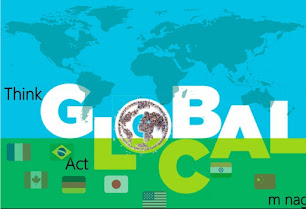Global + Local = Glocalisation
Introduction
You might be familiar with the concept of Globalization as there has been much buzz around it. While it has brought home many enormous benefits, the other side says something else. Globalization generally does not put much emphasis on the needs of the local population. To solve this problem, we have got a new concept which serves the global as well as local needs with the help of Glocalisation. Read this article to know about the concept of Glocalisation.
Glocalisation is the process by which international goods or services are tailored to a local market's customs, regulations, or tastes. Globalisation and localisation are merged in this word.
The term was first used in 1980 by Roland Robertson in the Harvard Business Review, who defined it as "the simultaneity—the co-presence—of both universalising and particularising tendencies."
Brands who did it best
Many businesses utilise glocalisation when they enter new markets, while others constantly modify their glocalisation approach. Here are some of our favourite global brand localisation examples:
McDonald’s
McDonald's, which has more than 69 million customers globally, is one of the most frequently used glocalisation instances because it has perfected tailoring its branding, food offerings, and dietary needs to each of its target regions.
Big Macs without cheese are available at kosher McDonald's locations in Israel. For Hindus who don't consume beef, their Indian restaurants primarily serve chicken, lamb, and vegetarian meals. The McArabia Chicken is available in the fast food chain's outlets in Arab nations.
Whirlpool
For their Indian women customers, they equipped their washing machines with specially designed agitators. It also localised its products for capturing and increasing the Asian market. They provided their refrigerators with vibrant colours of red and blue when they got to know that many Asians keep their refrigerators in their living room as a status symbol.
Whirlpool was able to win the trust of its Asian and Indian clients by tailoring its products to suit their needs.
The Walt Disney Company
Many of the products have been modified to fit in with regional traditions and customs. A prime example are the Disney theme parks.
Every park has a "featured castle" that is unique to the area like Disneyland Paris' Le Chateau de la Belle au Bois Dormant. Each park offers unique goods, celebrations, meals, drinks, and rituals that pay homage to the local culture. For instance, Hong Kong Disneyland's Feng Shui. Finally, the theme parks provide many iterations of classic rides as well as rides that are specific to the area. For example, Tokyo DisneySea's Sinbad's Storybook Village.
Advantages of Glocalisation
- Boost your chances of approaching.
- international markets with success.
- Promote innovation in the target country's economy.
- Increase locals' employment opportunities.
- Boost the economy's ability to produce.
- Better access to goods and services that are more plentiful, affordable, and diverse.
Globalization v/s Glocalisation
Since both the terms just have a difference of a single letter - B and C , many might get confused with them. By now you must have understood the literal meaning of the terms, there are other differences as well which makes the concept of Glocalisation unique.
- Glocalisation takes into accounts cultural diversity whereas Globalization tends to focus on homogeneity.
- Glocalisation adopts a different marketing approach. It starts with understanding the local market first in order to serve them effectively.
- Glocalisation is one step further and is more effective in serving both the local as well as global markets.
Conclusion
Although the world is increasingly adopting globalisation approaches, we should focus more on practicality. Glocalisation should become a new normal in order to harness the benefits that are accruing from the global as well as local markets.
References
- https://www.investopedia.com/terms/g/glocalization.asp#:~:text=Key%20Takeaways-,Glocalization%20is%20a%20combination%20of%20the%20words%20%22globalization%22%20and%20%22,consumer%20in%20a%20local%20market.
- https://en.m.wikipedia.org/wiki/Glocalization
- https://www.getblend.com/blog/glocalization-vs-globalization/#:~:text=Globalization%20refers%20to%20the%20process,to%20local%20markets%20and%20cultures
- https://veracontent.com/mix/glocalization-what-it-means-and-which-brands-are-doing-it-best/
- https://www.wallstreetmojo.com/glocalization




Comments
Post a Comment